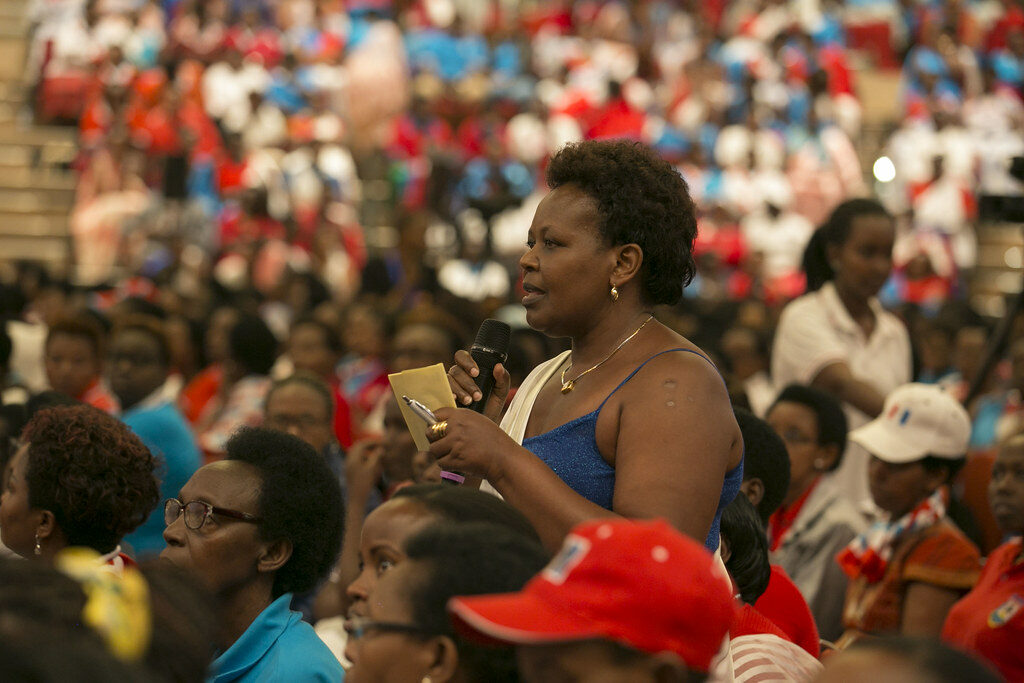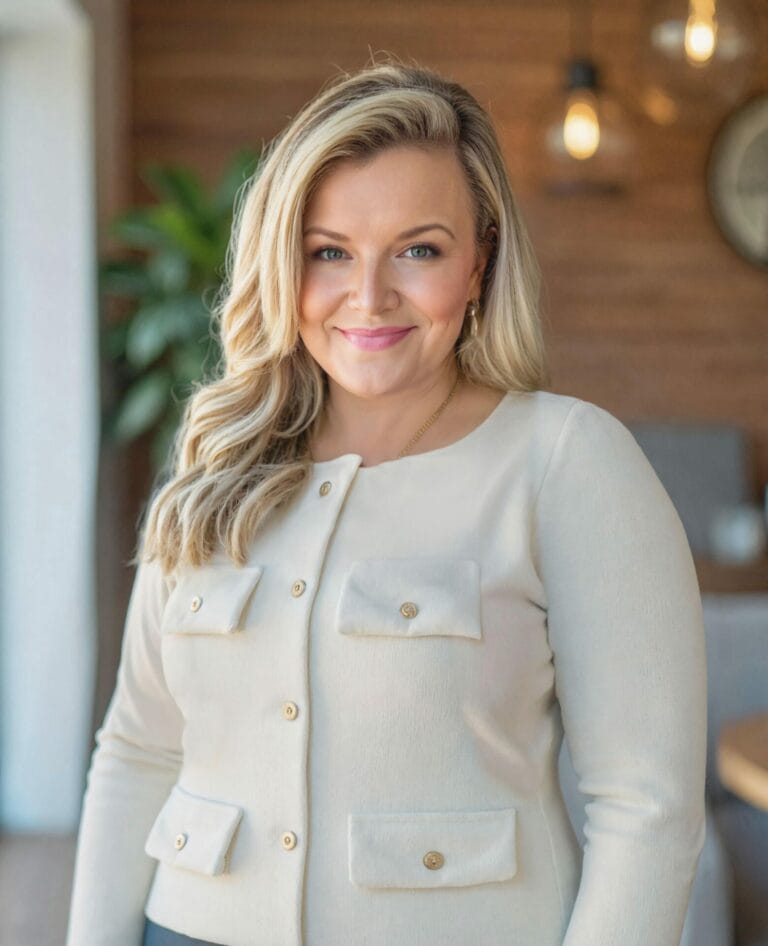Female Leadership- When Public Health Budgets Get Cut, Families Feel It First
Political budget cuts threaten public health research and emotional wellbeing as families face delays in cancer care, vaccine safety and vital support

Sarah Martinez paused the congressional hearing livestream as her mother called from the kitchen, confused again about where she’d put her medication. Alzheimer’s had slowly stolen away the woman who once managed a household of five children, and now Sarah found herself listening to budget debates whilst spooning applesauce into her mum’s mouth. The word ‘compassion’ kept floating from her laptop speakers, but all Sarah could think about was the clinical trial her mother had been hoping to join – one of many now postponed indefinitely.
Across the country, similar moments played out as Secretary Kennedy defended the Trump Administration’s proposed budget cuts to the Department of Health and Human Services before Congress. Families juggling medical appointments, research hopes and daily care needs heard politicians debate figures that felt abstract until they hit home.
The Debate in Washington, The Reality at Home
Secretary Kennedy opened his testimony by stating his goal was to create the ‘most compassionate’ HHS in American history. The House Energy and Commerce subcommittee hearing covered everything from cancer research to vaccine recommendations, with Republican members praising Kennedy’s fresh approach whilst Democrats expressed alarm about public health impacts.
The partisan divide was stark. Republican subcommittee members commended Kennedy’s leadership priorities, which include combatting the opioid crisis and using artificial intelligence to better manage data. Democratic members, however, focused on what the proposed cuts would mean for American families relying on federal health research and guidance.
Kennedy’s testimony revealed telling gaps. He admitted he hadn’t fact-checked the MAHA report that cited non-existent papers and mischaracterised studies. When asked to protect NIH employees who signed a whistleblower document, he refused to commit. At one point, he was forced to retract accusations against a congressman about pharmaceutical company payments.
The Numbers That Matter to Real People
The political debates hide facts that touch everyday lives. Recent cuts to NIH staff have delayed critical cancer treatments, extending the time patients wait for personalised immunotherapies from three to four weeks to eight to ten weeks. When you’re counting days until treatment, those extra weeks feel enormous.
The numbers tell the story: approximately 2,100 research grants totalling around $9.5 billion have been terminated, with thousands of staff positions eliminated. Over 40 grants for vaccine hesitancy research were cut, leaving families to navigate conflicting health information without the benefit of evidence-based guidance.
The ongoing research funding gap affects children and adults alike. Congresswoman Schrier didn’t mince words during the hearing: ‘You lied to Senator Cassidy. You have lied to the American people. You have lied to parents about vaccines for 20 years…I will lay all responsibility for every death from a vaccine preventable illness at your feet.’
The emotional stakes couldn’t be clearer in Colette Delawalla’s assessment. The Executive Director of Stand Up for Science warned: ‘People will die preventable deaths, entire economic sectors will be wiped out, hundreds of thousands of people will lose their jobs, and America will not be healthier.’
When Scientists Become Whistleblowers
The Bethesda Declaration represents an unprecedented show of concern from within the NIH itself. Over 300 current NIH employees signed this whistleblower document, with endorsements from more than 60 Nobel laureates and 30,000 concerned individuals across the US.
The declaration describes how current policies force federal employees to go against their oath of office and the NIH mission. These aren’t political operatives or outside critics – these are the researchers and staff who work daily on the studies that inform medical care, the people who understand firsthand how policy changes affect scientific integrity.
When hundreds of career scientists risk their jobs to speak out, it suggests the concerns run deeper than partisan politics. The Scientific Integrity Act introduced in Congress this year aims to protect researchers from political interference, but for now, these employees remain vulnerable to retaliation.
The Faces Behind the Numbers
The human cost emerges in fragments: a mother researching autism therapies after funding for related studies disappeared, a family history of breast cancer suddenly feeling less hopeful about prevention advances, parents questioning whether their child’s vaccination schedule is still evidence-based as public health departments reduce immunisation programs.
With nearly 41% of Americans expected to receive a cancer diagnosis at some point and 6.9 million currently living with Alzheimer’s, research delays affect millions of families. Women’s health research has been disproportionately affected, limiting advances in gender-specific conditions and pregnancy-related complications.
Research published in the Annals of Internal Medicine projects that proposed Medicaid spending cuts could cause 7.6 million Americans to lose health insurance, potentially leading to thousands of preventable deaths annually. The estimates range from 8,241 to 24,604 preventable deaths each year – numbers that represent real people with families who love them.
These aren’t abstract policy discussions when you’re the one waiting for test results, scheduling your parent’s next appointment or trying to decide whether to trust conflicting health advice circulating online.
What Families Can Do
Whilst the political battles feel enormous and distant, families aren’t powerless. Reliable resources like Immunize.org provide science-based vaccine information and conversation guides for parents navigating health decisions. The Public Health Collaborative offers misinformation management guides to help families identify and respond to false health claims.
Staying connected with trusted healthcare providers remains crucial, especially as federal guidance becomes less reliable. Finding authentic health conversations through trusted sources helps cut through the noise of conflicting information.
Local health departments, despite their own funding challenges, continue providing community-based health services and can offer personalised guidance. For those wanting to advocate for science funding, organisations like Stand Up for Science provide ways to support evidence-based health policy.
Writing to representatives about specific research priorities – cancer, Alzheimer’s, vaccine safety studies – helps lawmakers understand the personal stakes behind budget numbers. Finding your voice in advocacy can feel daunting, but small actions matter when families unite around shared concerns.
Political fights will continue, but the effects land most heavily on families trying to keep loved ones healthy. Every delayed treatment, cancelled study and confused parent represents the real cost of turning public health into a partisan battlefield. The policy debates in Washington rooms may feel distant, but their consequences reach into kitchens, hospital waiting rooms and bedrooms where people are simply trying to care for the people they love.





